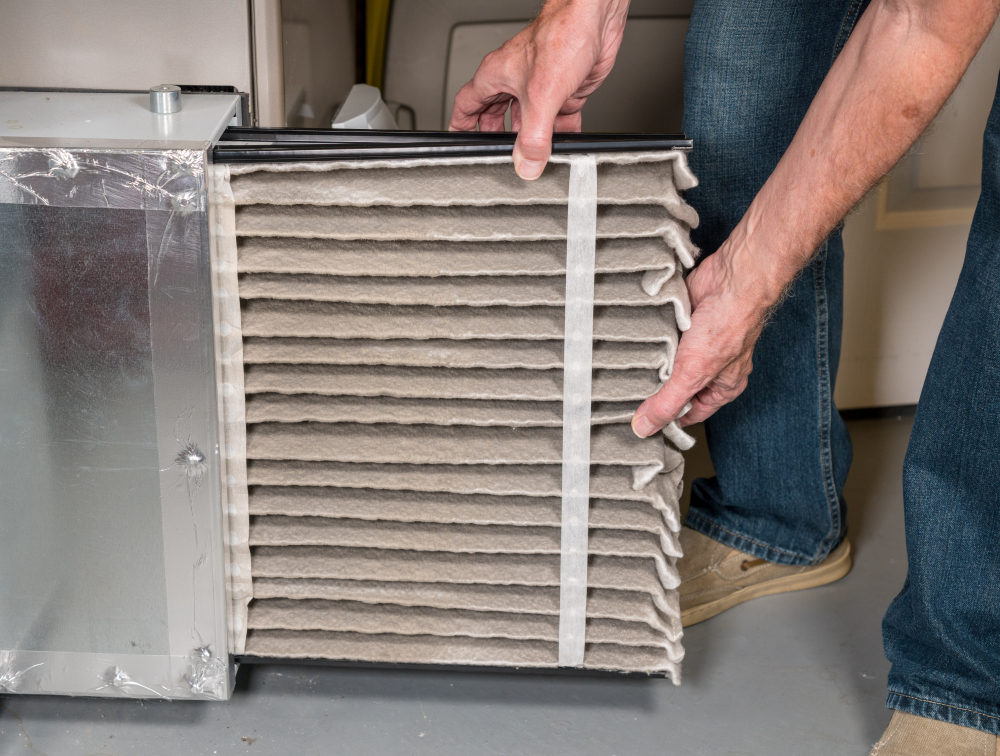Why it’s Important to Change Your HVAC Filter

The most significant source of HVAC system failure can be attributed to clogged air filters, which is why it’s essential to change or clean it regularly, not just when your AC performance is affected.
There can be some significant consequences if you don’t change your HVAC filters, so here are a couple of reasons why you should stay on top of it.
System Failure
System complications or failure can occur when your air filters are clogged. As air flows into your HVAC system, it’s able to block contaminants such as dust, pollen, bacteria, hair, lint, mold, animal fur and more. Air filters add a layer of protection that improves your air quality as it recirculates into your home. If your system’s air filter is too dirty or clogged, it can add strain to your motor and create system complications or failure.
Expensive Utility Bills
If your air filter is clogged, your HVAC system might be working overtime to cool your home, resulting in your HVAC system running for longer than you want it to, increasing your utility bills. By simply changing your air filter regularly, you can improve the efficiency of your unit and make sure you aren’t incurring unnecessary expenses.
Health Issues
If your air filter is too dirty, air flowing through the filter can pick up loose contaminants and either drop them within your ducts or circulate them back into the air that you’re breathing. This is a health concern, especially if you or your family suffer from allergies. Immediate health symptoms can include headaches, itchy eyes and throat, nausea and dizziness. Changing your filter regularly can help to ensure that you have optimal indoor air quality.
Poor Circulation and Temperature Regulation
Dirty air filters can result in poor temperature regulation, which can happen when dirt, debris and particles built up on the filter blocks airflow into the unit. This poor circulation can lead to inconsistent home temperatures from room to room. If you find that airflow consistency is a problem, check your air filters – chances are that your HVAC system is struggling to perform due to clogged filters.
How Often Should You Change Your HVAC Filters?
For optimal HVAC system performance, manufacturers recommend that you change basic filters every 30 to 60 days. However, this timeframe can vary depending on the type of filter you’re using and your living conditions. For example, it’s recommended that:
- If you live in a family home without pets, filters should be changed approximately every 90 days.
- If you live alone and don’t have any pets, you can usually wait 6 to 12 months before changing your filter. The same applies to HVAC systems at cottage or holiday homes that are only used a few times a year.
- If you have one pet in a home, your filters should be changed every 60 days, regardless of how many family members you have.
- If you have a family, multiple pets and suffer from allergies, it’s recommended that you change your filters more often, between 20 to 45 days.
If you’re not sure, start with a new filter and check monthly for a significant accumulation of dirt and debris. When you notice some dirt throughout the filter, note the number of days or months since the new filter was installed (ex: 30, 60, 90 days) – mark this length of time into your calendar for future reference.
Following these air filter recommendations can help improve your air quality and save you money in the long run. To find out more about the benefits of regular HVAC maintenance, contact the experts at Maintemp Heating and Cooling. Our team can help identify issues before they become a big problem and keep you comfortable year-round.
